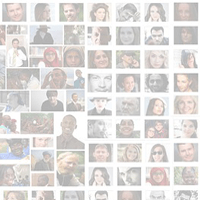When to Use Facebook's Required Tagging Feature


The ability (and in some cases, requirement, more on that below) to tag a business partner is one of the newest updates to make its way to more Facebook Pages in 2017 (it was previously limited). Marketers may be wondering how or when they should use it - especially considering it's much different than "tagging" as we've come to know it which is simply mentioning another company (as seen below).

The "tagging" demonstrated above has been noted in the past to possibly increase organic reach, as Facebook "may show the post to some of the people who like or follow the tagged Page." What Facebook has added to its post editor for more Pages, however, is the ability to tag a business partner to disclose relationships and share metrics.
By doing so, the business partner will be able to view the post's metrics and use it to create an ad. If the original poster decides to boost the ad, the tagged partner will also be able to view ad spend and CPM metrics (see below).

Common Sense Tagging
Business partner tagging makes sense in a couple different scenarios: (1) when an influencer is paid to promote a product or service on a company's behalf, they should tag the advertiser so the advertiser is able to tie conversions to the influencer; (2) when a Page is being used by a company to advertise for another company, they could tag them in order to ensure transparency of results.For the former, Website Magazine was told by a talent agent, who manages the contracts of reality-TV talent (many of which are paid quite handsomely to promote products on a company's behalf), that often brands want direct access to the influencer's Facebook Page in order to get metrics like reach, click throughs, etc.
By tagging the advertiser as a business partner instead, the influencers' privacy is not at risk, yet there is a high level of transparency so the advertiser can calculate the return on their investment. This was not an option just a few months ago for many Pages and one that Facebook did not in the past require (since then it has simplified its Branded Content guidelines).
Facebook-Required Tagging
While it would be the advice of some (ahem) to not tag a business partner unless they specifically ask for it - because there might be third-party metrics (like when social campaigns are tied to Google Analytics) that may have a more in-depth overview of results and favor the promoter better - Facebook is stating that it " requires creators and publishers to tag their business partners in their branded content posts." So, there's that.Facebook defines branded content as a " creator or publisher's content that features or is influenced by a business partner for an exchange of value."
In other words, if there are conversions or even leads that could exchange hands between the two businesses, the relationship must be disclosed by tagging that partner. Further, Facebook states:
 "When tagged, a business partner will be notified and be able to see high-level performance insights as well as have the ability to share the post to their Page and put additional spend behind it. Branded content posts can be recognized by seeing 'Paid' within the post just underneath the 'with' tag that identifies the business partner [see image, source]. Creators and publishers will continue to be responsible for complying with any relevant advertising regulations in their markets - including providing necessary disclosures that indicate the commercial nature of the content that they post."
"When tagged, a business partner will be notified and be able to see high-level performance insights as well as have the ability to share the post to their Page and put additional spend behind it. Branded content posts can be recognized by seeing 'Paid' within the post just underneath the 'with' tag that identifies the business partner [see image, source]. Creators and publishers will continue to be responsible for complying with any relevant advertising regulations in their markets - including providing necessary disclosures that indicate the commercial nature of the content that they post."
Not all creators or publishers, as Facebook calls them, will see this tool within its post editor. If it's not automatically available to admins - as it was for Website Magazine - then they will want to submit an application here.
Disclosure Tagging & More
It should be noted, however, that the FTC will likely not consider this new Facebook business tagging feature acceptable as a means of advertising disclosure. The FTC has over the years been somewhat slow to enforce the casualness at which influencers disclose, or in many cases don't disclose, the relationship between them and advertisers. It seems that this laissez-faire period is over, however.In April 2017, the FTC issued more than 90 letters "reminding" influencers and marketers that influencers should clearly and conspicuously disclose their relationships to brands when promoting or endorsing products through social media. If you're interested in reading the letter's template, you can find it here.
There's certainly been enough material published by the FTC for influencers and marketers to understand the guidelines.
That said, it seems that Facebook is forging its own digital path in what it deems acceptable disclosure for branded content with dual value between Pages. If brands want to comply with Facebook, they'll need to not only tag business partners so each party sees the campaign's metrics and a "with" appears in the post itself, but also comply with FTC guidelines.
Facebook clearly writes that Pages need to "comply with all applicable laws and regulations, including by ensuring that you provide all necessary disclosures to people using Facebook, such as any disclosures needed to indicate the commercial nature of content posted by you."
Not Tagging Could Cost You
While there are no fines for violations of the FTC Act (which covers a number of guidelines including those for social media influencers), the FTC states that law enforcement actions can result in orders requiring defendants in the case to give up money they receive from their violations. As for Facebook, there are a number of ways the social network can hit businesses where it hurts.In theory, Facebook could ban the Page from posting for a certain amount of time (if not altogether); Facebook could limit organic reach even further than most Page's already experience; and Facebook could suggest tagging a business partner when it detects a paid relationship (perhaps without letting the creator proceed without the tag).
The business tagging feature and guidelines are new to many, but it is one worth watching if a company is working with another company or influencer to promote products or services in a way that benefits each monetarily.

Subscribe to Our Newsletter!
Latest in Social Media










